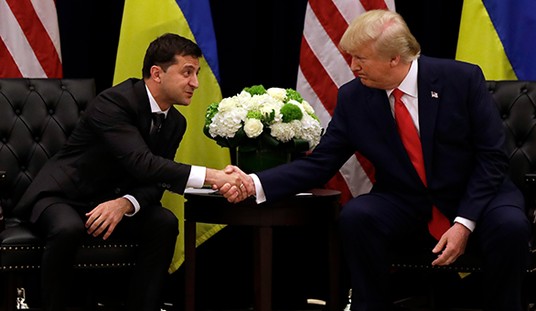The North Koreans appear to have successfully detonated a hydrogen bomb in January 2016 and promise more excitement to come. Immediately after the bang the government news agency bragged that the nation was now “capable of wiping out the whole territory of the U.S. all at once.”
This only slightly distracted mainstream politicos in other nations. North Korea might have gotten a bigger, badder reaction had it elected instead to drive steamrollers over groups of homosexuals or Muslims or women. At least Bernie Sanders, though closer in kinship to the North Korean brand of monarchical socialism than to, say, Ronald Reagan, noticed the bomb.
World leaders only pause long enough to clear their throats whilst agonizing over how to use global warming to control still more of everyone’s lives. Big, bad, business barons meeting in Davos last week were raving about robotics and the internet of things. Christine Lagarde, International Monetary Fund Managing Director, said “We’ve heard a lot about the Internet of Things—I think we need an Internet of Women.” These, they say, are the pressing global issues of the day.
It is not that these things are unimportant. It’s just that the politically correct perspective seems shortsighted and naïve given that jihad and #raperefugees and the wiping out of the U.S. all at once rips bits and bytes out of the internet and everything else.
North Korea is one of the world’s most impoverished nations. It is constantly the recipient of food aid, particularly from Communist China, upon whom it exercises an unhealthy dependency. North Korea is somewhat of a pariah in international relations, facing constant criticism and only maintaining internal stability because of support and encouragement from China.
Recommended
Though technically still at war with South Korea it is surprising that between 1995 and 2005, the South provided about $1.2 billion in aid.
Even the United States—whom the North Koreans deplore each June in a Hate America Month—contributed over a billion dollars in aid in the decade preceding 2005. “With enemies like these, who needs friends?” may be the North’s position
Between 1995 and 1997 perhaps two million—no one is entirely sure of the exact tally—North Koreans died from famine. Because of its command-and-control socialist policies, North Korea is always a step away from another horrific famine
Yet for all the horror some see method to this madness.
North Korea has long been at the forefront of the global warming war. According to the North Korean government, it has “consistently directed great efforts to the land management and environmental protection in order to prevent global warming.” Government follows all the policies that Western Greens pine for, and then some. It controls the minute details of life. It has socialized not only medicine but intimacies of life. Science experts decide the most sustainable path for the nation. In short, North Korea is a Green Utopia.
In the book Collapse, Jared Diamond produces a satellite composite of the world at night showing how brightly lit are the USA, Western Europe, and Japan, and how sparsely lit is the rest of the world. His message is that bright lights are bad for the environment, examples of glaring overconsumption.
I get a thoroughly different impression. In North Korea, total darkness. In South Korea, a riot of activity splashed on a canvas, a productive light on a hill.
Their liberty and industry notwithstanding, daylight satellite images show, relative to the North, South Korea is green and verdant. North Korea is an environmental nightmare. The communists blame it on the Americans, the drought, whatever. One might think that drought would not discriminate, yet its destructive effects seem curiously to follow the line of the demilitarized zone between North and South. On one side green and growing, on the other side blasted and barren.
Night satellite images show almost no lights in North Korea. It looks peaceful; there is no movement, little industry, presumably a green paradise. Though perhaps horrified by North Korea’s oppression of its people, environmentalists do admire the darkness, ascribing a quiet dignity to people who consume less. Their carbon footprint must be extremely low. Almost all the people live a life of downward mobility. A North Korean gulag escapee noted that, “Once in a great while we would have a fish. We could only catch these when the guards weren’t around, because fishing was banned at Yodok. The guards—straight faced as ever—said that the rule existed to protect the environment.”
Green Utopia must be for the birds.

























Join the conversation as a VIP Member